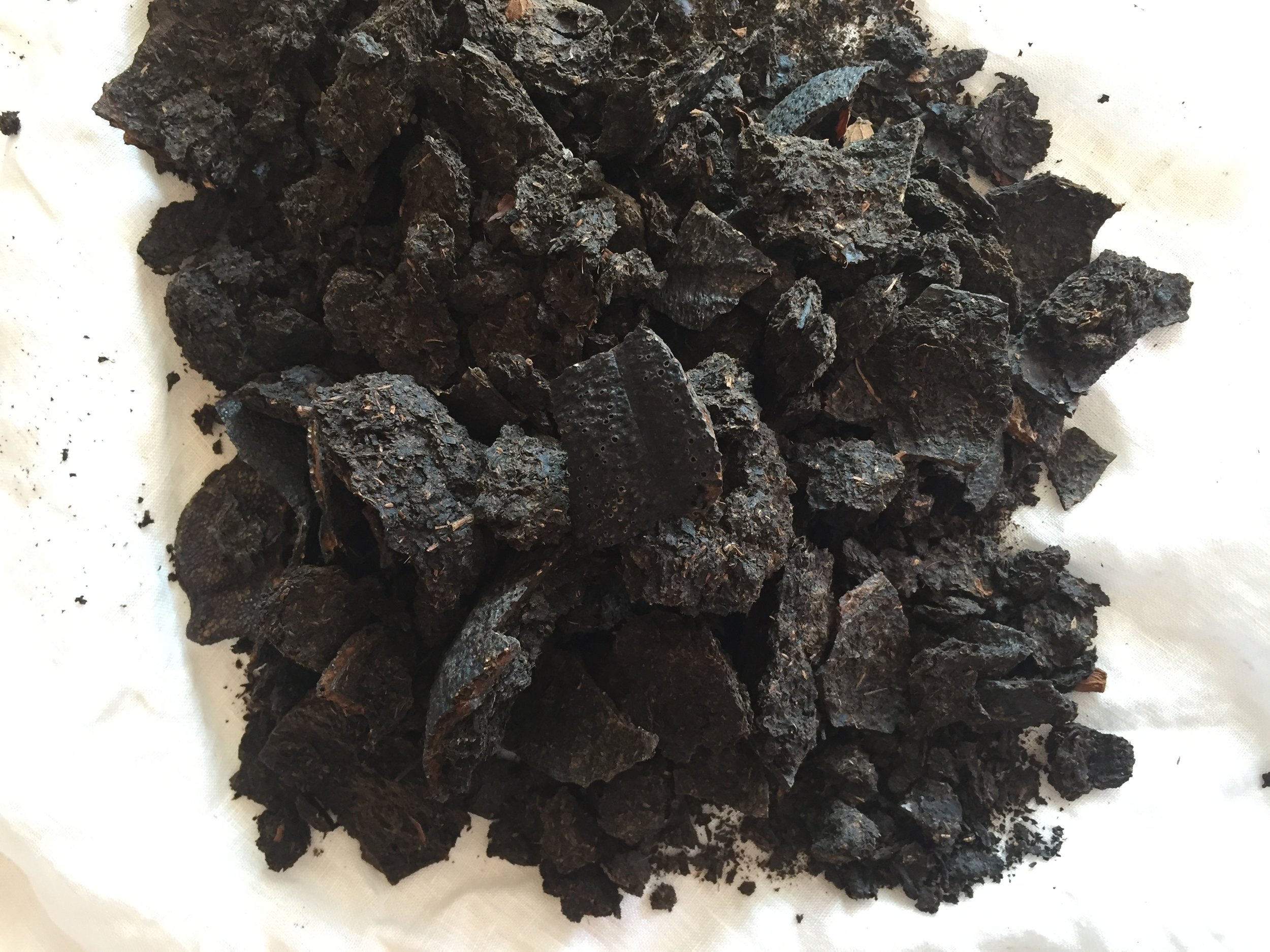If I Had a Hammer...
I wouldn’t necessarily “hammer in the morning…hammer in the evening…[or] all over this land.” I’d take that hammer, smash a suangan tea to pieces, and place them in jars for easy future consumption. It’s not as catchy as Peter, Paul, and Mary’s song lyrics but appropriate directions for drinking suangan tea.
Suangan is literally translated as sour citrus. It’s a popular tea within Taiwanese Hakka communities, notably those located in Taoyuan, Xinzhu, Miaoli, and Pindong. A special species of citrus is picked at 70-80% ripeness then stored for 10 days to allow the skin to soften. This softening is a crucial step, that if not done correctly will lead to cracking of the citrus peel later in the process. A 3-4 cm wide hole is cut on top of the citrus, which is set aside to use as a lid. The citrus is hollowed out and the tea (often The Beauty of the Orient), a few strips of lemon, Buddha’s hand and other Chinese medicinal herbs are inserted into the citrus.
The citrus is then tied up with the lid back on and pressed into a flat circular shape, steamed in a bamboo steamer, and dried under the sun. The color of the citrus peel transitions from a golden yellow to brownish yellow and finally to a hard, coarse blackish brown. From there, it can be consumed though aging is the way to go, in my opinion.
I’ve been drinking a 17-year old suangan tea from Miaoli, aged since 2002 on a daily basis for the entire month now. It’s a perfect tea for a mild winter—warming but not in the way an aged raw or ripe puer. The weather as of late has been overcast but not particularly wet or cold, the perfect backdrop for the suangan to shine. It’s mellow, without that qi-packed punch and deep earthiness in puers but still has complexity and layered flavors. It’s easy to drink with a pleasantly muted citrus note that doesn’t overpower the tea. The palate gets to experience a range of flavors with some sweet, sour, and light bitterness (depending on the length of infusion and age of the tea). Most importantly, it leaves your body very settled and relaxed with the balance of aged citrus and tea.
Serving Notes: 6-8g in a teapot that retains heat well e.g., Yixing clay, for every infusion ensure water is hot (close to boiling). Rinse tea quickly for 3 seconds, 20 seconds for the first two infusions and then around 30 seconds for subsequent infusions
Health benefits in Chinese medicine lingo: lowers internal heat, relieves heat stroke, helps indigestion, soothes throat/coughing. The citrus peel, known as chenpi, that is dried and aged is a Chinese medicine ingredient in its own right. The longer the aging process is allowed to take place, the more potent the effects, I’m told. Predominantly it is used to regulate qi in the spleen and stomach, dry dampness in those same regions, and dissolve phlegm of which wheezing and cough with phlegm are symptoms.



